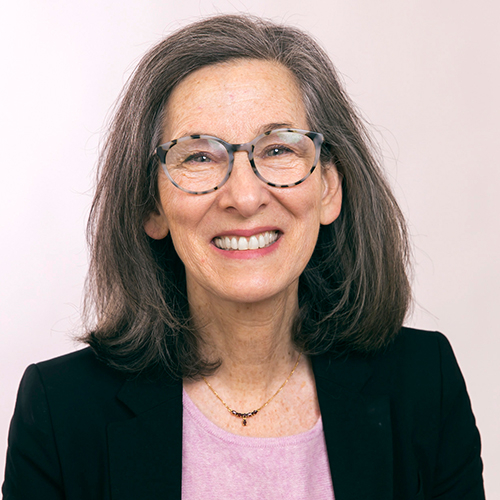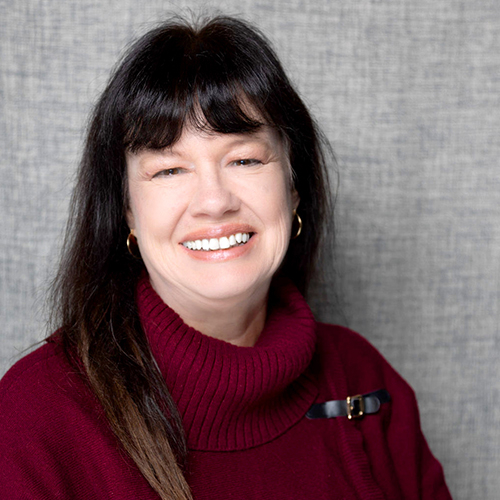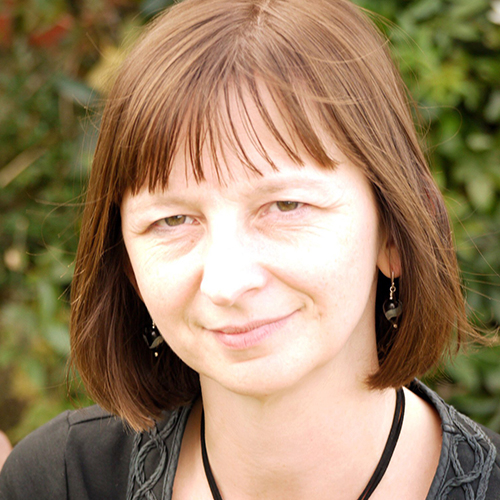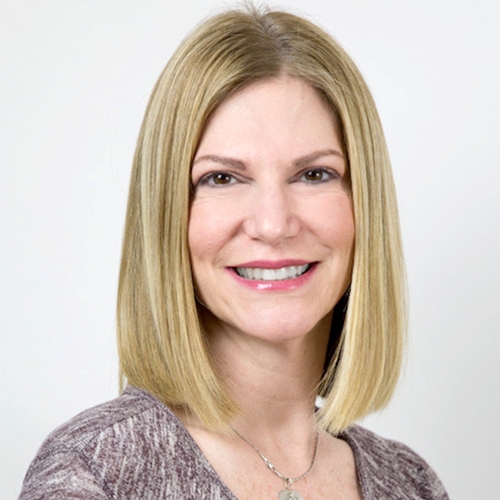 Pre & Post Care Online Course(s) & Continuing Education
Pre & Post Care Online Course(s) & Continuing Education
Access the latest clinical skills and research for Pre & Post Care for Tongue-tie, Lip Tie & Structure professional training. These Pre & Post Care online courses provide practice-changing skills and valuable perspectives from leading global experts. This Pre & Post Care education has been accredited for a variety of CEUs / CERPs and can be accessed on-demand, at your own pace.

Building a Clinical Tongue-Tie Care Plan Families Can Work With

Gina has been assisting breastfeeding mothers for over 20 years, and now through telehealth all over the world. She knows that while most pregnant mothers expect to breastfeed, very few receive proper preparation for the difficulties and the rollercoaster of emotions when there are problems.
When Gina had her first baby, like many new mothers she was overwhelmed by conflicting information: at the hospital, the pediatrician’s, and from well-meaning friends and family.
Her appreciation of the volunteer support she received led her to want to “pay it forward” and help others. She first trained as a volunteer LLL Leader in Houston, Texas, then as a birth doula in Amsterdam, The Netherlands, and finally sat for the exam to become an IBCLC in Seville, Spain. She continues to lead monthly breastfeeding support meetings online and in-person.
Gina believes that all mothers deserve quality emotional and educational support. It should not be just a matter of good luck. She's dedicated to giving effective guidance and caring support with real results. Her greatest satisfaction is the joy of seeing that look on both mothers’ and babies’ faces that says: Just what I always wanted!
When tethered oral tissues (TOTS) are impacting feeding, a care plan must be tailored to the unique circumstances of the parent(s), the baby and the reality of their environment. Parents are often feeling overwhelmed and desperate and from the moment of our initial consult, our nurturing care and guidance provide safety and relaxation. When parents feel understood, they often cry and release a massive amount of stress. The flow of oxytocin and endorphins can soothe their emotional pain as they begin to trust that help is possible. We calmly identify areas needing attention, we prioritise them, and we find out what is most easily doable for the parent(s) among the top priorities. Each step of the care plan offers choices (in regards to feeding, positioning, milk supply, exercises, etc) that will positively impact both the wellbeing and the feeding experience. We help parents to understand that feeding is a whole body activity and that an improvement in any area gives ripples of improvement in the others. We make adjustments as needed, and the changes begin to flourish. We replace fear and confusion with confidence and flexibility. Parents understand “the why” of each step and begin to enjoy that they themselves are driving the positive change!

Navigating the Challenges of Tongue-Tie: Counseling and Anticipatory Guidance

Adrienne Guirguis, a board certified lactation consultant has over 25 years experience in helping breastfeeding infants and their families. She began her journey into the world of lactation after struggling to breastfeed her oldest son. She became an accredited La Leche League leader and was able to help babies breastfeed. Her experience with La Leche League led Adrienne to become a International Board Certified Lactation Consultant (IBCLC). She has been board certified for 20 years and has experience with a wide range of problems that may be experienced by new families. Adrienne has worked in hospital for over 10 years and then worked in community health for many years. She is a clinical practitioner, working hands on with families to improve feeding outcomes.
Adrienne continues her lactation education, constantly attending conferences and courses to stay up-to-date on the information and skills needed to benefit those who most need breastfeeding help. In 2022 Adrienne completed the Holistic Integrative/Functional Lactation course, a year long program followed by a residency. This course has increased her skills to provide the best care for the families with whom she works.
Adrienne also is an educator, working within the community to teach others the skills necessary to become lactation counselors and eventually board certified lactation consultants.
Parents with infants who are having breastfeeding issues due to tongue tie, face a complicated journey of conflicting information and differing opinions, complicated care plans and challenging emotions. Providing anticipatory guidance about the education providers receive on tongue tie, the many faceted symptoms of tongue tie for both parent and infant, the functional assessment versus the appearance of tongue and compensatory behaviors are all important for the parents to be able to make informed decisions and successfully navigate their way back to successful breastfeeding. Learn more about how to provide necessary information in a compassionate and useful way to already overwhelmed parents.

Post Frenotomy Wound Management and Bodily Autonomy

Effath Yasmin is India's leading Biodynamic Craniosacral Therapist, an award winning International Board Certified Lactation Consultant & a Documentary Film Maker. She is also an International Speaker, an Author & a Bach Flower Practitioner.
Her special interests lie in Infant Oral, Sucking & Airway Dysfunction, Tongue Tie, Birth Trauma, Craniofacial Development and a range of chronic physical and mental dis-eases & quantum energy phenomenon. She applies these sciences into Life Coaching, Inner Child Healing and Parenting. Her approach stems from fundamental truth of human organism is complete and self-regulatory and treatment & counselling approach is by deep listening & true empathy to mind body and spirit rather than by intervention.
She currently sits on several national & international professional boards.
She has spear-headed & dedicated her life to many projects with a central mission of advocacy, education and awareness for integrative multidisciplinary wellness approach worldwide. Her work has been published in the International Journals & a textbook and she writes extensively on print and digital media on the subjects of Breastfeeding, Tongue Tie, Parenting & Health related subjects.
Her international award winning film 'Untying Breastfeeding' exposes the glaring unseen obstacles to Birth & Breastfeeding & early parenting that can help restore motherhood and has been widely celebrated over 1500 Cities worldwide. She is currently pursuing her Ph.D. in Metaphysical Sciences.
Topic: Rethinking Surgical Tools - Infant Frenotomy & Pain - [View Abstract]
Topic: Trauma Informed Care in Clinical Infant Oral Assessment: Understanding Body Autonomy - [View Abstract]
The most talked about discussions amongst parents or professional groups across the world is post frenotomy wound management. In the last 15-20 years of development, the field of oral restrictions has yet to see an evidence-based approach or even just a global consensus on approaches and their efficacy in wound management. Therefore lactation consultants, dentists, and surgeons have been using their clinical reasoning to choose the methods and protocols for individual breastfeeding dyads. Nevertheless, the current unregulated wound management protocols have been often reported as traumatic experiences for infants, parents, and care providers. Additionally, a physical oral examination of an infant during the assessment, evaluation, and treatment, and rehabilitation of oral restrictions is essential and vital in an IBCLC clinical practice. It's often seen as a ‘necessary evil’ in clinical work. Some infants may be at risk of reattachment and/or trauma which can have lifelong impacts such as triggers for past memories, anxiety, distress or discomfort, or even PTSD. This can lead to oral aversion symptoms, complete refusal to latch and breastfeed, turning away from food, and gagging, coughing, and choking. Therefore, a respectable trauma-informed approach to oral examination and wound management is based on the fundamental principles of respect for bodily autonomy ensuing a sense of safety, trust, and connection.

The Elephant In The Room - Bleeding Post Tongue-Tie Division

Sarah is a Registered General Nurse, Health Visitor, International Board Certified Lactation Consultant and Tongue-tie Practitioner with a busy private practice based in Cambridgeshire, UK. Sarah is a founder member and former Chair of The Association of Tongue-tie Practitioners and has written a book for parents and professionals, ‘Why Tongue-tie Matters’. Sarah lectures nationally and internationally on infant feeding and tongue-tie.
Topic: COVID-19 and Implications for Tongue-Tie Division in Infants - [View Abstract]
Topic: Is This a Tongue-Tie: How Do We Decide? - [View Abstract]
Topic: The Elephant In The Room - Bleeding Post Tongue-Tie Division - [View Abstract]
This presentation explores professional and lay perspectives on bleeding post tongue-tie division. It will examine what constitutes abnormal bleeding and why this may occur. Risk assessment and reduction will be discussed. Management strategies that have been found to be effective, along with the development of guidelines on bleeding by the Association of Tongue-tie Practitioners will be described.

Understanding the Variations of Active Wound Management and Neuromuscular Re-Education

Robyn Merkel-Walsh, M.A., CCC-SLP/COM® is a Licensed Speech Pathologist with over 25 years of experience. She is employed full time by the Ridgefield Board of Education and runs a private practice in Ridgefield, NJ. She is also an author, lecturer, and consultant for TalkTools® . Robyn specializes in Oral-Placement, feeding, and orofacial myofunctional disorders in the pediatric population. Her publications include, SMILE (Systematic Intervention for Lingual Elevation), Art Talk, Handy Handouts, OPT-S Kit, and she co-authored Sensory Stix, A Sensory-Motor Approach to Feeding, Functional Assessment and Remediation of Tethered Oral Tissues and Oral Placement Therapy Goals for Speech Clarity. She has also written several articles for the TalkTools® website, The ASHA Leader, and Advance Magazine for Speech Pathologists. She has been published five consecutive years at the annual convention of the American Speech-Language and Hearing Association. Robyn received both her undergraduate and graduate degrees from Montclair State University, where she was later invited to be an adjunct/clinical supervisor. She has also taught classes and/or as a clinical supervisor for: Bergen Community College, Seton Hall University and Malloy College. She is a member of American Speech-Language and Hearing Association, American Academy of Private Practice in Speech Pathology and Audiology, New Jersey Education Association, International Association of Orofacial Myology, Oral Motor Institute, Ankyloglossia Bodyworkers , International Consortium of Ankylofrenula Professionals and The Bergen County Apraxia Association. She served a term on the New Jersey Speech and Hearing Association Board of Directors and was the private practice co-chair. She is also the Board Chair of the Oral Motor Institute and the Associate Editor of the International Journal of Orofacial Myology.
There is a better understanding within the fields of medicine and dentistry, lactation, speech-pathology, occupational and physical therapies that functional assessment and treatment is critical for optimal lingual, buccal and labial frena releases. Semantics and terminology however are often confused regarding a treatment protocol. Post-op TOTs care has two phases: 1) Active Wound Management to maintain the integrity of the wound and avoid scarring and re-attachment and 2) Neuromuscular Re-Education to address the underlying muscle and motor- based deficits that are secondary to the oral restriction(s). Both stages of treatment must be considered. This course will outline the two stages, review national scopes of practice for various professionals involved in TOTs care and discuss guidelines for referrals to team members. Specific techniques will be reviewed and categorized as to which stage of treatment is being addressed, which sometimes may overlap.

Will It Hurt? Frenotomy Aftercare Strategies to Optimize Healing Outcomes for the Newborn

Melissa Cole, MS, IBCLC, RLC is a board certified lactation consultant, neonatal oral-motor assessment professional, and clinical herbalist in private practice. Melissa has been passionate about providing comprehensive, holistic lactation support and improving the level of clinical lactation skills for health professionals. She enjoys teaching, researching and writing about wellness and lactation-related topics. Melissa holds a bachelor of science degree in maternal child health and lactation consulting and her master’s work is in therapeutic, clinical herbalism. Melissa actively conducts research and collaborates with several lactation and health care professional associations. Before pursuing her current path, Melissa’s background was in education and cultural arts, which has served her well in her work as a lactation consultant and healthcare educator. She loves living, working and playing in the beautiful Pacific Northwest with her 3 children.
Topic: Beyond Fenugreek: An Individualized Approach to Dietary and Herbal Galactagogues - [View Abstract]
Topic: Beyond the Basics of Latch: Support Strategies for Helping Babies when the Basics Aren’t Enough - [View Abstract]
Topic: Common Infant Digestive Health Concerns and Useful Support Strategies - [View Abstract]
Topic: Connection and Care: Virtual Support for Tongue-Tied Infants - [View Abstract]
Topic: Feeding is Movement: Activities for Supporting Optimal Infant Oral Function - [View Abstract]
Topic: Infant Gut Health: Common Concerns and Useful Support Strategies - [View Abstract]
Topic: Infant Oral Assessment: Exploring Anatomy and Function Beyond the Frenulum - [View Abstract]
Topic: Low Milk Production Detective Work: Assessment and Care Plan Considerations - [View Abstract]
Topic: Nature’s Nurturers: Plant Medicine for Perinatal Mental Health - [View Abstract]
Topic: New Thoughts on Infant Pre and Post-Frenotomy Care - [View Abstract]
Topic: Placenta Medicine as a Galactogogue: Tradition or Trend? - [View Abstract]
Topic: Thinking Critically About the Use of Clinical Lactation Tools - [View Abstract]
Topic: Will It Hurt? Frenotomy Aftercare Strategies to Optimize Healing Outcomes for the Newborn - [View Abstract]
There are a few emerging theories and clinical practice ideas when it comes to frenotomy aftercare for the newborn. Clinicians and families sometimes struggle with the idea of how to balance efficient post-frenotomy care while minimizing stress and discomfort of the newborn. While the evidence strongly points to the benefit of frenotomy for tongue-tied neonates, there is little published evidence regarding best aftercare practices. During this presentation we will explore the neonatal experience of pain along with pain management and oral healing strategies. We will also discuss the impact of stress on wound healing and focus on ways to help keep babies calm and happy through the recovery process. For families coping with a tongue-tied baby, it is often a physical and emotional roller coaster ride. This presentation will help provide a well-rounded view of frenotomy aftercare issues as well as clinical, care strategies to optimize healing and feeding for the newborn.











